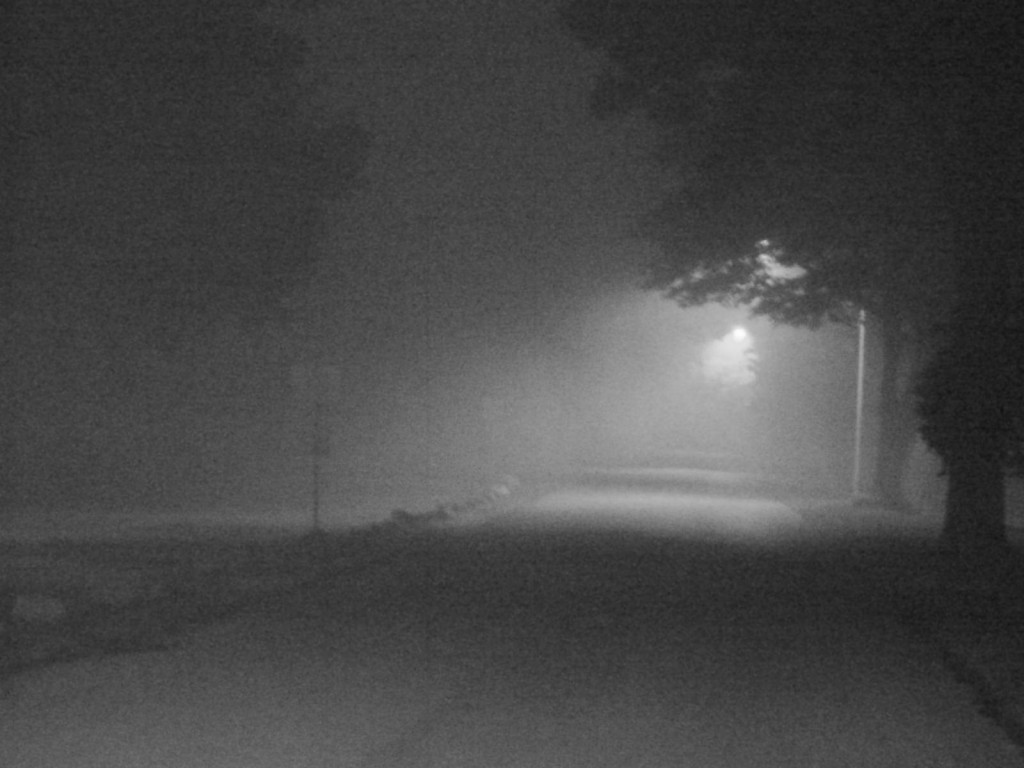Do you ever open your eyes in the early morning, lying in bed against the dark window and silent streetlight, only to realize–clearly, as if for the first time–all the things that you are not? The blank slate of dawn is unforgiving, for you cannot blame these thoughts on a long day or noisy night. Your family will sleep peacefully for a few more hours while you lie awake, looking at the wall and quietly taking these soft, shameful punches to the stomach. The disinterested stillness has chased your normally confident self out of bed, leaving its lumpy, unimpressive counterpart behind. You recognize these forces and try to combat them with your old tricks: I am many things, you tell yourself, as you’ve told yourself before. Mother, wife, daughter, friend. Those are good things (you know this) and you are good at them. But there are many good things that you are not and never will be. Things that you just can’t be; things that you weren’t born to be. Most days, what you are not barely enters your mind. But on this dark and dreamless morning, with a clarity cold enough to ache, it’s all you can see.
What is it that, every now and again, casts this grim net over our unsuspecting hearts? Is it last night’s bad dream, forgotten in detail but lingering in mood? Is it a belated response to thoughtless words, tossed dismissively at us the day before? Or is it simply a psychological law of motion–for every action, an equal and opposite reaction–that is keeping our egos in check lest we get haughty in our successes? I would accept any of these explanations, so long as I don’t have to accept the most frightening one:
[sociallocker id=”9134″]
that my self-doubt is real and, worse yet, justified. Insecurity at the hand of one’s peer or one’s psyche is a cakewalk compared to insecurity at the hand of What, in fact, Is.
Have you ever had such a morning? I have. Yesterday, I did. And though I didn’t talk much about it (what’s to say–welcome to adulthood?), its blackness stayed with me as I woke the kids, made the lunches, did the dishes. Wiping down the kitchen counters, I listened to a lecture on the university station wherein a professor was talking about finding the divine in our every day life. We should recognize it and we should record it, he said. Every single day.
What a sweet sentiment, I thought grimly. Trite and tired, but sweet. I changed the station and turned my attention back to my heavy heart. Few things satisfy like self-pity.
Ten long hours later I drove across town to pick up my daughter from swim practice. She chatted happily in the car while I listened, quiet and distracted. She was sparkly and teenager-y and oblivious to my mood, and I was glad. Had she asked me what was wrong, what could I have told her? That I was sad because I was me?
We walked through the house to the fridge, where I opened the door and pulled out a covered plate. She chirped happily as I peeled off the wrap, revealing the Asian chicken–“my fave!”–I had made earlier. She bounced through the kitchen, foraging for food to hold her over until dinner was warmed. I smiled thinly and put the plate in the microwave. Punching the black buttons, I suddenly felt two gangly adolescent arms thrown about me from behind. A head of brown curls burrowed into my back as a hint of her little-girl voice laced the maturing one.
“I love you!”
“Oh, wow…I love you too.”
It was that trite and tired, and that sweet. And I don’t think it was all that deep; my daughter had thrown her arms around me with the sheer joy–I’m pretty sure–of anticipating a good meal after a hard workout. Right then, it was all she wanted in the world and I had made it for her and she loved me for it. And in that dim kitchen on that dim day, despite all my efforts to the contrary, I found a smidge of divinity.
She started to pull away but I turned around and held her tightly against me, breathing in the mass of tangled brown hair that has soothed me since forever.
“Thanks, honey. I really needed to hear that today.”
“Why today?” Her voice was muffled against my sweater.
“Oh, I just did.” I couldn’t explain things to her–or maybe I just didn’t want to. How do you explain depression? I kissed the top of her head and thought about what my daughter, and the professor, had said. Their words did not change anything or solve anything, but they got me through the night. And the next morning, when I opened my eyes against the dark window and silent streetlight, for some inexplicable reason (time? weather? sleep?) I no longer saw what I was not. I saw, instead, that the world–and my own self in it–was just as it should be. And that it wasn’t only good, it was good enough.
[/sociallocker]
